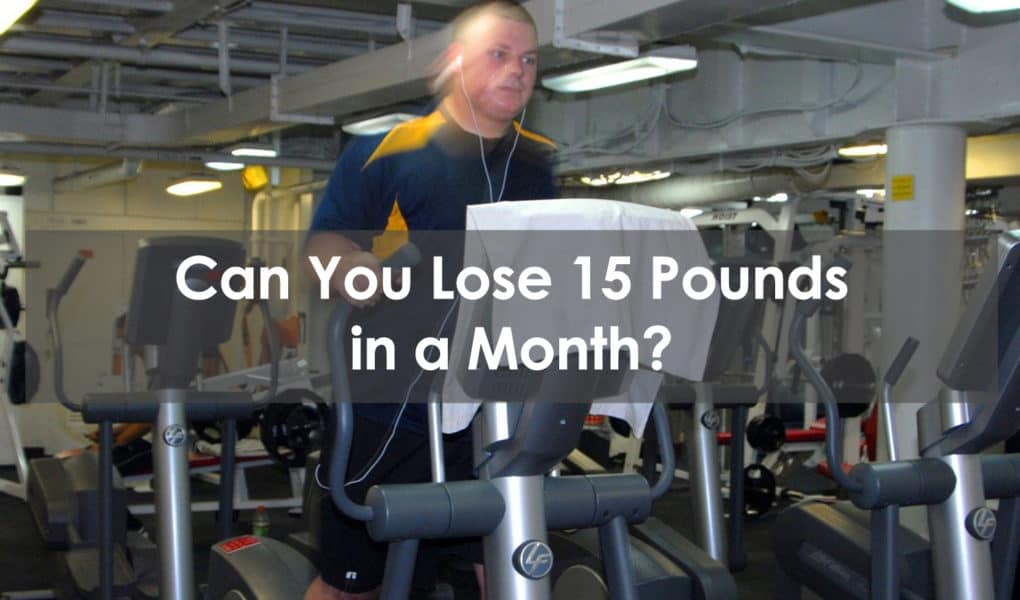Picture this: it’s a month away from your wedding day, and that wedding dress or tux that you bought is just a couple of sizes too small for you at your current size.
“If only I could lose just 10-15 pounds before the big day,” you think wistfully.
Is this possible? It depends…read on for more details.
Is it sustainable? If all you’re thinking about is your wedding day in a month, this question may not matter much to you. But I would argue that it should matter. Being able to maintain a healthy body composition throughout your entire life is crucial to maintaining overall health and vitality and actually fully enjoying that life you are about to create with your significant other.
Is it possible to lose 15-plus pounds in a month?
For some people in certain situations, it could be possible to lose 15-plus pounds in a single month. Some conditions make it easier to lose body weight faster.
For example, the more body fat you have, the faster you’ll lose it, once you’re in a calorie deficit. As another example, if your normal diet is very high in carbs and you suddenly switch to a low-carb or keto diet, you will see rapid initial weight loss.
Even if you don’t switch to a keto diet, you can see an immediate loss of water weight if you suddenly start a weight loss plan that has you eating far fewer calories than you are used to. This is due to a change in glycogen content in the liver and muscles, which leads to a rapid flushing in water and likely a lower number on the scale. It could also be due to the simple fact that there is less food in your gastrointestinal tract.
What it takes to lose 15-plus pounds in a month
Losing weight at a rapid pace (i.e., more than about a pound or two per week) will require several things. First, conditions must be ideal. As noted above, most people who lose weight that rapidly will already be at high levels of body fat. If you have more fat to lose, you will lose it more quickly.
Next, you may need to adopt a keto diet (a diet in which you eat 50 grams or less of carbohydrates per day) in order to quickly lose water weight.
Furthermore, you will need extremely high levels of discipline and virtually never deviate from your diet throughout the entire month. Crash diets such as the “cabbage soup diet”, in which you eat very little other than cabbage soup and other foods that keep your calories per day extremely low, can result in 10-15 pounds of weight lost over the time span of a month.
But if you succumb to the extreme hunger and boredom of eating that comes from foregoing all of your favorite foods, your weight will likely shoot back up again the next day (again, this would not be due to actual body fat gain, but to water retention and increased food volume). So you will need almost superhuman levels of discipline in order to continue adhering to aggressive diets such as these.
The tradeoffs of losing 15-plus pounds in a month
Even if you view losing 15-plus pounds in a month as a positive thing, you must remember that there is a tradeoff to everything. What you need to discern for yourself is if the positives outweigh the negatives for the decisions that you make.
With that said, here are just a few of the tradeoffs you will be forced to make if you go the route of a crash diet to reach your weight loss goals.
You will most likely not be able to sustain the weight loss.
Crash diets are just that — diets where most people crash and burn after a period of time. No one can thrive for long on a diet consisting of mostly juice and cabbage soup. You will develop very high levels of hunger due to hormonal changes that occur when you lose a lot of weight rapidly, and this will make you much more prone to binging high-calorie foods…eventually leading to renewed weight gain, drastic blood sugar spikes, and likely a habit of emotional eating.
You may experience more muscle loss than normal.
Some research indicates the possibility of losing lean muscle mass during periods of extreme caloric restriction. This is bad news because having plenty of lean body mass is crucial to maintaining a healthy lifestyle, avoiding sarcopenia, preventing bone loss, and preserving metabolic health. The muscle becomes harder and harder to build as you get older, so you need to do everything you can to avoid unnecessary lean body mass.
More sustainable strategies to better body composition
Your weight loss journey is just that — a journey. It should not be a sprint, at least under normal conditions. Here are some very reasonable and sustainable strategies to make a part of your healthy lifestyle, which will hopefully lead to lifelong good body composition.
Don’t drink your calories
Drinking calories has a tendency to bypass satiety signals in our stomachs and brains, leading to consistent excess calorie consumption. If you’re looking to lose weight, avoid sugary drinks, the “calorie bomb” that is Bulletproof coffee, and regular sodas.
Eat plenty of lean protein
Although research has shown that calorie restriction of all types leads to weight loss, making protein a cornerstone of your diet is a good strategy to preserve lean muscle mass, as well as improve satiety when on a diet. Specifically, having a high-protein breakfast is a good strategy to keep hunger levels at bay throughout the day.
Eat 2-3 meals per day
There is no magic to intermittent fasting or following a specific meal timing when it comes to weight loss — all of these methods are just tools to regulate caloric intake. With that said, a caloric deficit is often easier to maintain if you’re eating fewer meals. 2-3 meals seem to be a good starting recommendation if your goal is to lose weight.
Eat home-cooked meals as much as possible
Meals at restaurants are typically higher in calories than home-cooked meals, due to both larger portion sizes and liberal use of oils and sugary sauces in the kitchen. For this reason, if your goal is to lose weight, eat the majority of your meals at home, and save eating out for special occasions.



